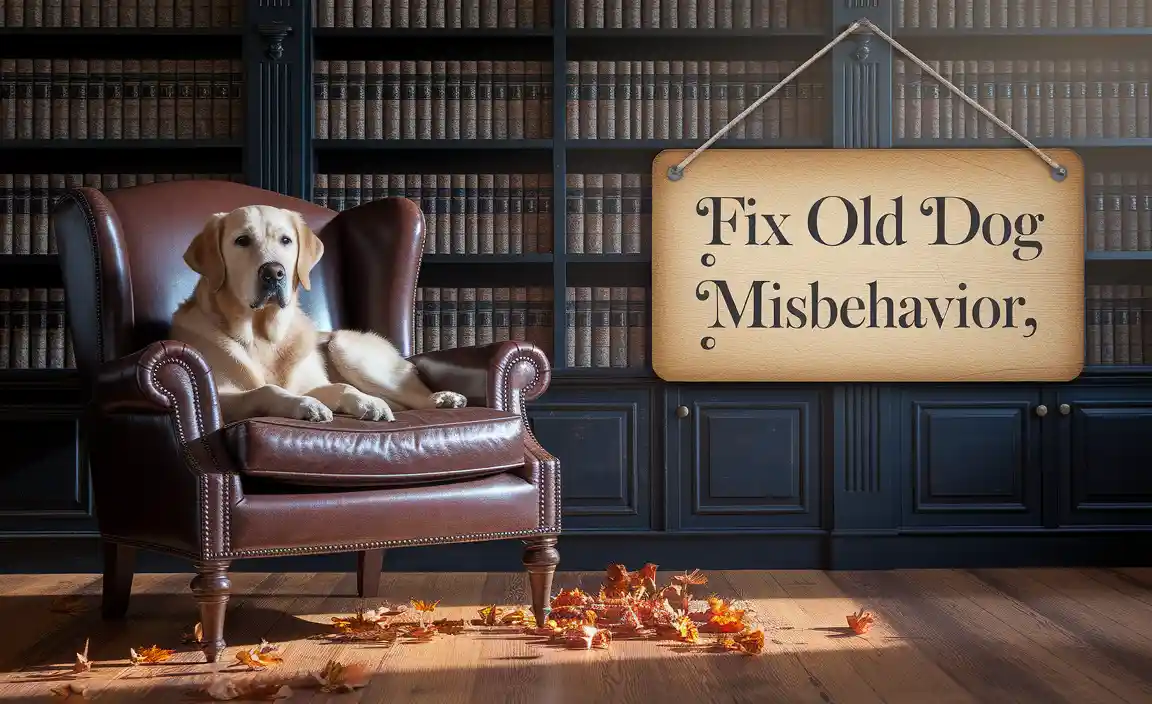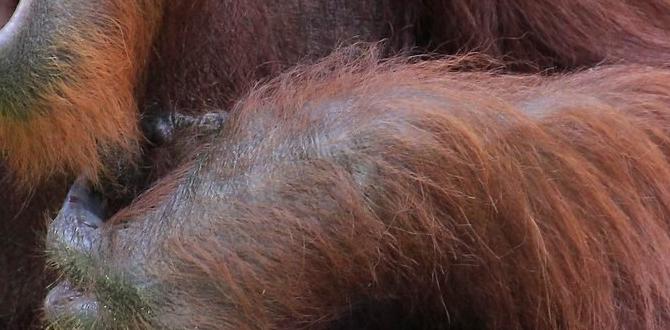Correct Dog Misbehavior in Older Dogs: Effortless Tips
The golden years of our canine companions should be filled with relaxed naps and gentle affection, not the frustration of correct dog misbehavior in older dogs. While it’s true that age can bring about new challenges, it doesn’t mean you have to resign yourself to a life of dealing with unwanted behaviors. Many of these issues are not a sign of stubbornness but rather a result of underlying physical or cognitive changes. With patience, understanding, and the right strategies, you can help your senior dog navigate these challenges and enjoy their twilight years with comfort and grace, while you enjoy a peaceful home environment.

Understanding the Root Causes of Senior Dog Misbehavior
Before diving into specific solutions, it’s crucial to understand why your older dog might be exhibiting new or worsening misbehaviors. Unlike younger dogs who might be acting out due to lack of training or boredom, senior dogs often have specific reasons for their changed conduct.
One of the most common culprits is age-related cognitive dysfunction (CCD), often referred to as canine Alzheimer’s. Similar to dementia in humans, CCD can affect a dog’s memory, learning ability, and spatial awareness. This can manifest as disorientation, forgetting house-training, changes in sleep-wake cycles, increased anxiety, and even aggression. If you suspect CCD, a veterinary consultation is paramount. Early diagnosis and management can significantly improve your dog’s quality of life.
Physical ailments are another major contributor. Arthritis, joint pain, vision loss, hearing impairment, or incontinence can all lead to behavioral changes. A dog experiencing pain might snap when touched in a sensitive area, become withdrawn, or refuse to go outside for potty breaks because it’s too difficult to navigate stairs or the cold ground. Hearing loss can make them startled and reactive to sounds they previously heard, while vision loss can lead to confusion and anxiety. Addressing these underlying medical issues through veterinary care is often the first and most impactful step in correcting misbehavior.
Addressing Common Senior Dog Misbehaviors
Once you’ve ruled out or are actively managing medical conditions, you can begin to implement behavioral strategies. The key here is adaptation and positive reinforcement.
House-Training Accidents: A Sensitive Approach
Accidents in the house are frustrating, but for older dogs, they can signal a variety of issues. As mentioned, incontinence due to age or medical conditions is common. However, other factors can contribute. Cognitive decline can lead to forgetting their established potty spots or even forgetting they need to go. Fear or anxiety due to diminished senses can also make them hesitant to venture outside.
Effortless Tips:
Frequent Potty Breaks: Increase the frequency of trips outside, especially after waking up, after meals, and before bedtime. Take them to their usual potty spot.
Celebrate Success: Lavish praise and offer a small, high-value treat immediately after they eliminate outside.
Clean Thoroughly: Use an enzymatic cleaner on accidents. These cleaners break down organic matter, eliminating odors that might attract your dog back to the same spot. Avoid ammonia-based cleaners, as they smell like urine to dogs.
Management: Consider using doggy diapers or belly bands for males if incontinence is an ongoing issue and medical causes have been ruled out or addressed.
Investigate Pain: If your dog seems reluctant to go outside, it could be due to pain from arthritis. Consult your vet about pain management options.
Destructive Chewing: Redirection, Not Punishment
While often associated with puppies, destructive chewing can resurface in older dogs, especially if they are experiencing anxiety, boredom, or tooth discomfort. A dog with CCD might chew out of confusion or to self-soothe.
Effortless Tips:
Safe & Engaging Toys: Provide plenty of appropriate chew toys. Rotate them to keep things interesting. Soft, gum-massaging toys can be ideal for older dogs with sensitive mouths.
Puzzle Feeders: Use interactive toys and puzzle feeders to provide mental stimulation and keep them occupied.
Supervision: When you can’t supervise directly, confine your dog to a safe area with their toys.
Address Anxiety: If anxiety seems to be the cause (e.g., separation anxiety), consult a professional for behavioral modification techniques.
Vocalization and Restlessness: Finding Them Comfort
Increased barking, whining, or pacing can be distressing for both you and your dog. These behaviors often stem from confusion, anxiety, pain, or a disrupted sleep cycle due to CCD.
Effortless Tips:
Rule Out Medical Issues: Pain or discomfort can cause vocalization. Have your vet perform a thorough examination.
Create a Soothing Environment: Ensure your dog has a comfortable, quiet, and safe resting place. Use calming music or white noise machines.
Consistent Routine: A predictable daily routine can reduce anxiety and confusion.
Gentle Reassurance: If your dog is disoriented, offer calm, gentle reassurance. Avoid overwhelming them.
Nighttime Support: If restlessness occurs at night, consider providing a comfortable bed near you and a nightlight.
The Importance of Patience and Veterinary Care
When you are working to correct dog misbehavior in older dogs, remember that your senior dog is not intentionally trying to be difficult. They are likely experiencing changes that are beyond their control. Approach these situations with immense patience and empathy.
Consult your veterinarian regularly. They are your most valuable resource. Discuss any behavioral changes you observe, as they can help differentiate between normal aging and a symptom of a serious health issue. A vet can diagnose and manage conditions like CCD, arthritis, vision or hearing loss, and other ailments that contribute to misbehavior. They can also recommend appropriate diets, supplements, or medications to support cognitive function and manage pain.
Training methods for senior dogs should focus on positive reinforcement. Punishment can increase anxiety and confusion, further exacerbating the problem. Instead, reward desired behaviors and redirect undesirable ones. Celebrate small victories, and don’t get discouraged by setbacks.
Conclusion
Caring for an aging dog is a profound and rewarding experience. By understanding the unique challenges that come with senior dog misbehavior, seeking professional veterinary guidance, and employing patient, positive reinforcement strategies, you can effectively address these issues. The goal isn’t perfection, but rather to ensure your beloved senior dog lives out their remaining years with comfort, dignity, and happiness, fostering a continued bond built on love and understanding.
Meet Elyse Colburn, the devoted canine companion and storyteller behind the enchanting world of “Tales, Tails, and Adventures Unleashed.” A passionate dog enthusiast with a heart full of paw prints, Elyse Colburn shares heartwarming tales and insightful adventures, celebrating the joy, loyalty, and endless antics that make every dog a true hero. Join Elyse Colburn on this tail-wagging journey, where every post is a love letter to our four-legged friends.




